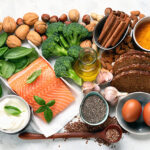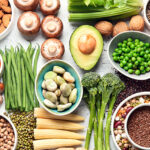WHAT’S NEW?
PROTEIN AND THE PROSPECT OF DIABETES There have been a couple of prospective studies or what we are now going to call “Methodist ministers and Cuban rum” studies recently on protein intake and risk of type 2 diabetes. The findings of the University of Eastern Finland study in the British Journal of Nutrition suggest the …
WHAT’S NEW?
FUDGING CONCLUSIONS ABOUT CHILDHOOD OBESITY PREVENTION “We have a pretty good idea of how to curb childhood obesity.” Such convictions run deep. And because of those convictions, prevention is a frontline strategy for dealing with childhood obesity. So, it’s especially dispiriting when we see the scientific literature stained by a paper that fudges conclusions about …
WHAT’S NEW?
MILK OR FAKE MILK? In June, European courts settled the matter. Only milk can be called milk in Europe, not those plant concoctions. In the US, the dairy industry is fighting to get FDA to enforce its regulations about what is milk and what is not. The FDA says it’s gotta come from cows, but …
WHAT’S NEW?
I AM NOT A DIABETIC National Diabetes Week 2017 kicks off on July 9 in Australia to raise awareness and understanding about this chronic condition. We thought we would do something different on the awareness-raising front with a poem by our UK colleague, Jim Young. I am not a diabetic. I have diabetes – you …
WHAT’S NEW?
GLUTEN FREE AND HEART HEALTH In April, ConscienHealth’s Ted Kyle reported on research that found that people who ate less gluten had a slightly higher risk of developing type 2 diabetes. Now a new study from Harvard finds that avoiding gluten won’t lower your risk of heart disease. In fact, the researchers conclude from their …
WHAT’S NEW?
APPLES AND ORANGES FRUITFUL IN REDUCING RISK OF TYPE 2 DIABETES Eating more fruit is linked to a lower likelihood of developing type 2 diabetes and diabetes-related complications reports a new study. The authors studied 500,000 Chinese people over seven years and found those who said they ate more fresh fruit were less likely to …
WHAT’S NEW?
TELL-TALE NUMBERS: WHAT AUSSIES ATE Although generally not eating in a manner consistent with dietary guidelines, the CSIRO’s 2016 study comparing the 1995 and 2011 national nutrition survey results found some positive changes in what Australians are consuming. What’s up? Whole fruit, a greater diversity of vegetables, more beans, peas and pulses, less refined sugar, …
What’s new?
Dietary Dilemmas. Popular diets can help you lose some weight in the short term, but keeping the weight off after the first year and the diet’s impact on heart health are unclear, according to a new systematic review. After analysing clinical trials on four popular diet plans that that promote weight loss and improved cardiovascular …
What’s new?
Sweet as! Four stories on sugars and sweetness feature in this issue of GI News. Run Rodent, Run! In September 2014, a study linking artificial sweeteners (aspartame, sucralose and saccharin) to the risk of diabetes hit the headlines. If you saw the headlines, you may have been tempted to bin your favourite alternative sweetener. What …
What’s new?
Diet research, stuck in the stone age. A current diet study making headlines purportedly asked, and answered this question: Which is better for weight loss and improving cardiac risk, a low-fat or a low-carb diet? writes Dr David Katz in the Huffington Post. The following edited summary is reproduced with his permission. But the study …




